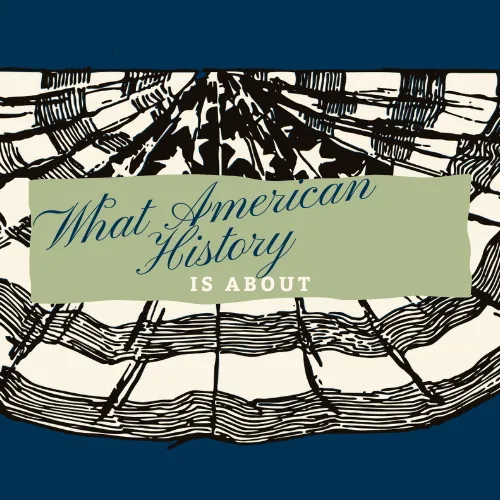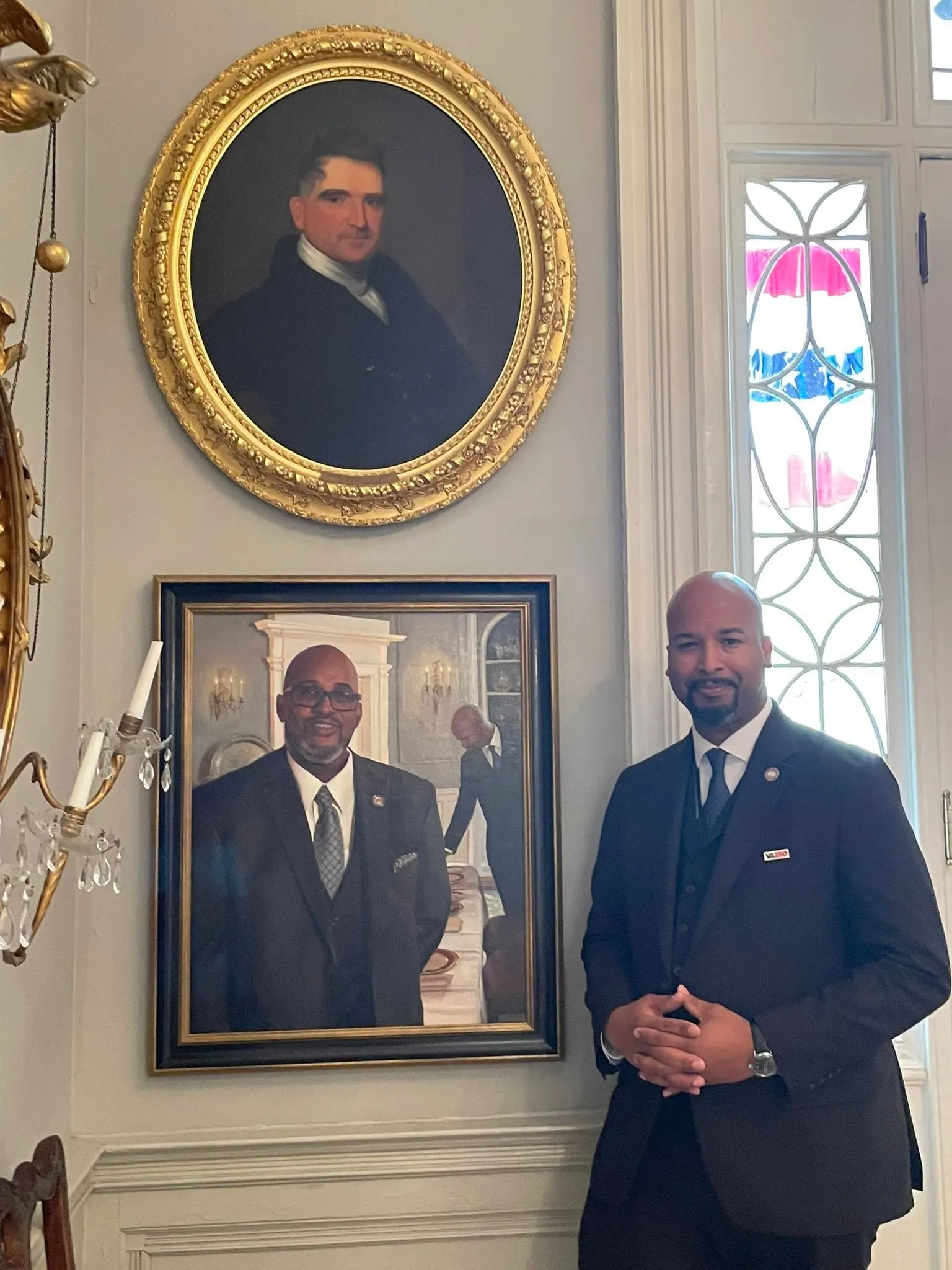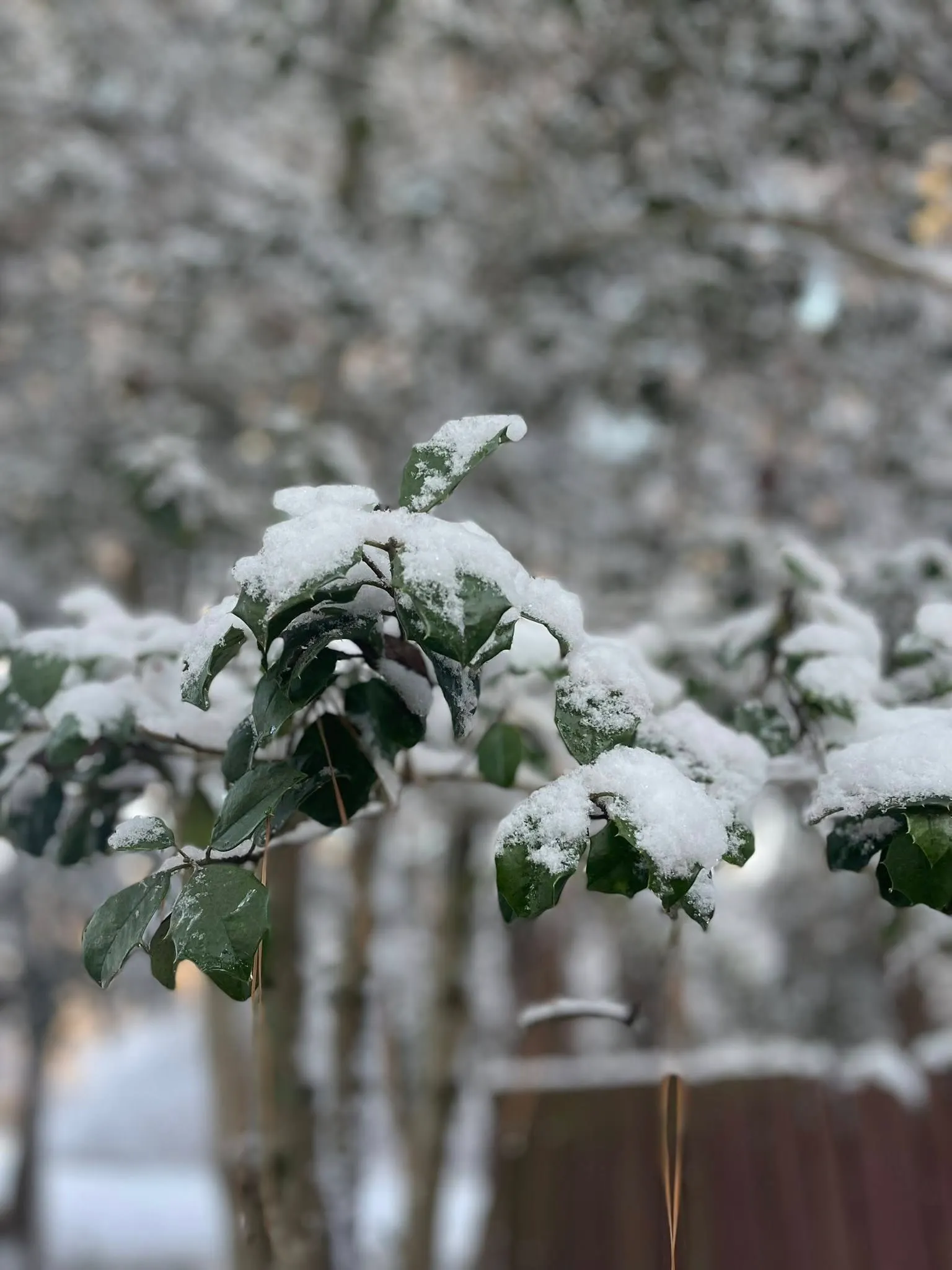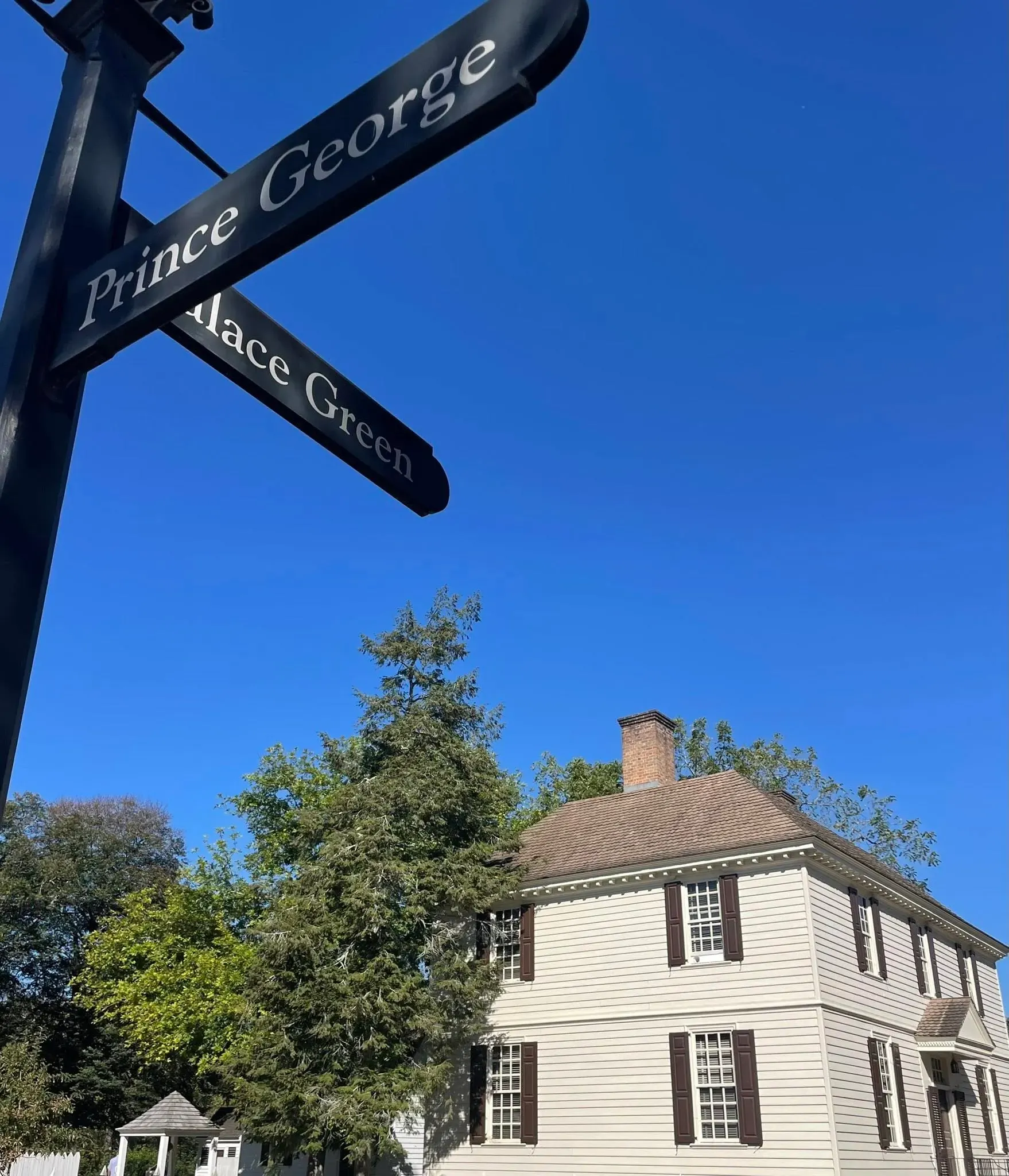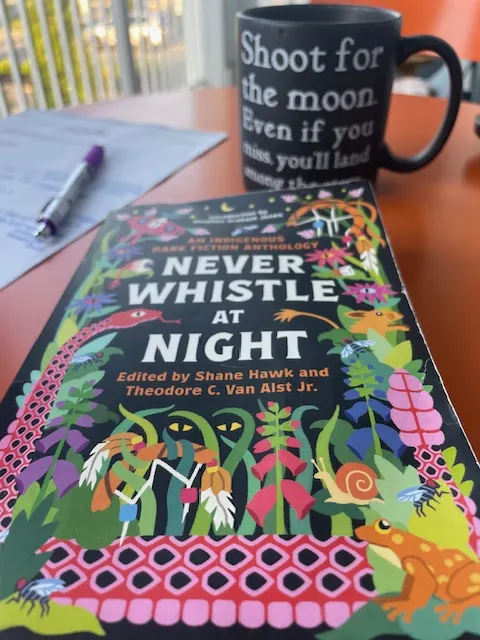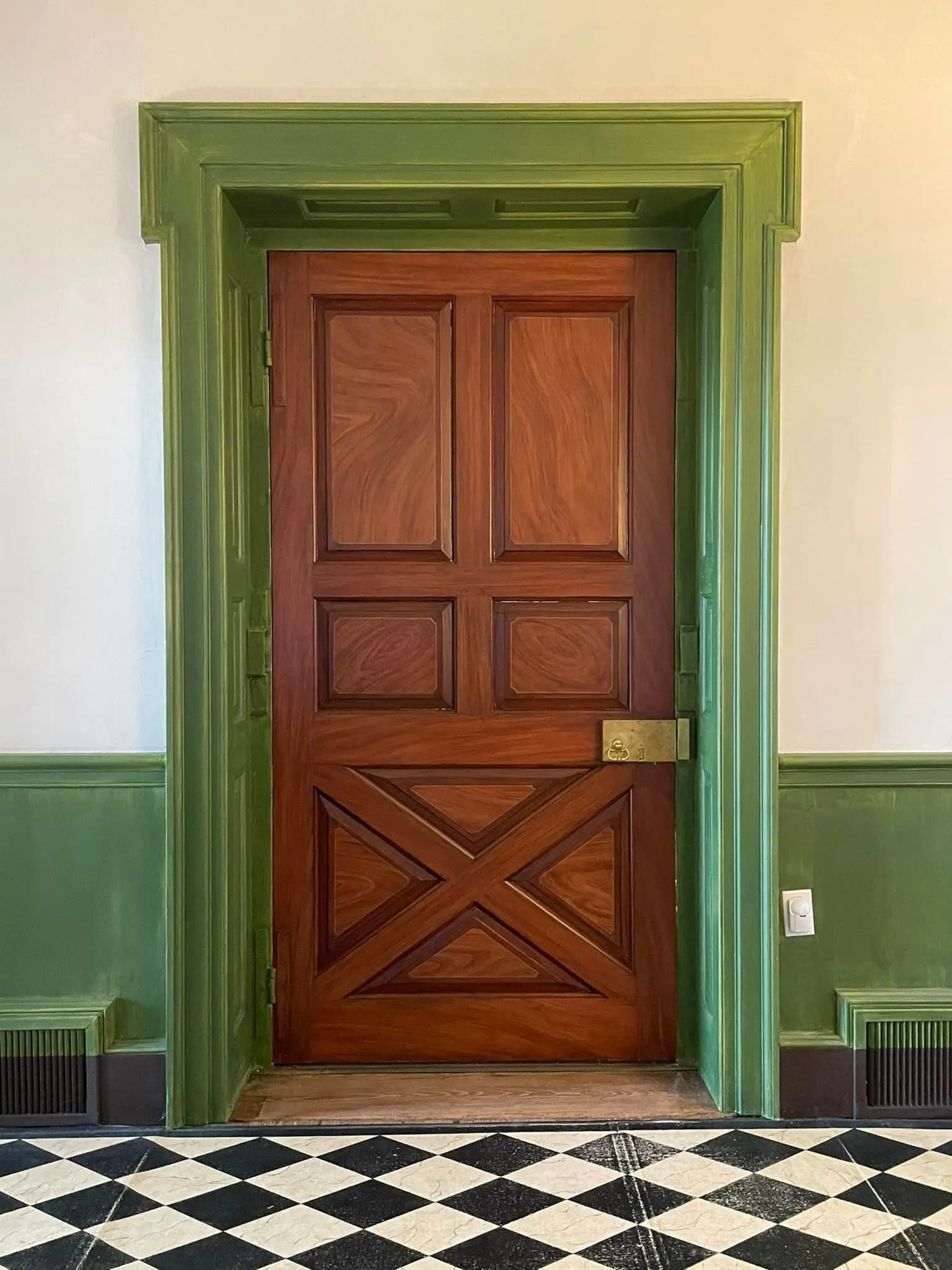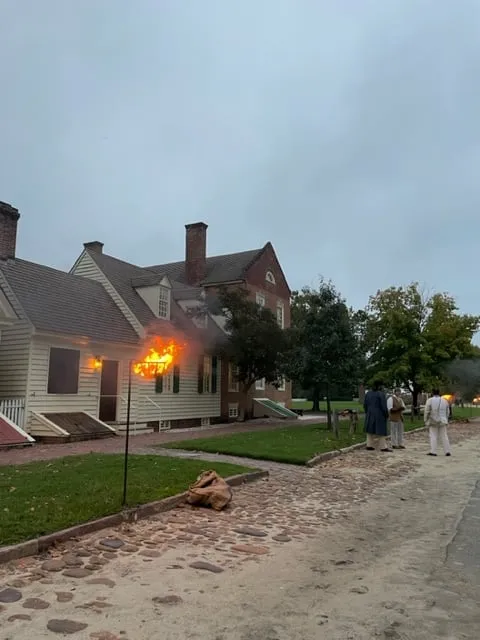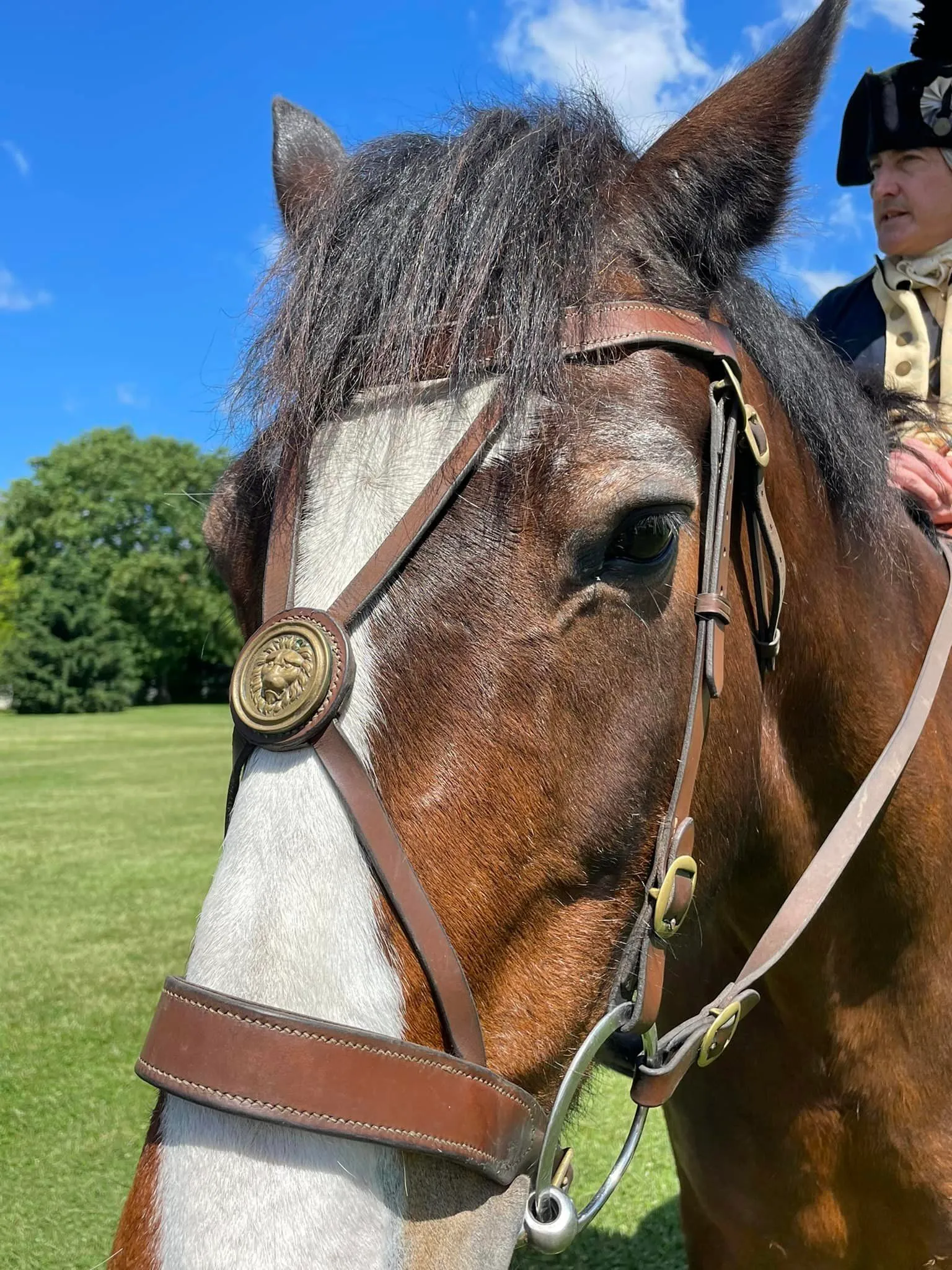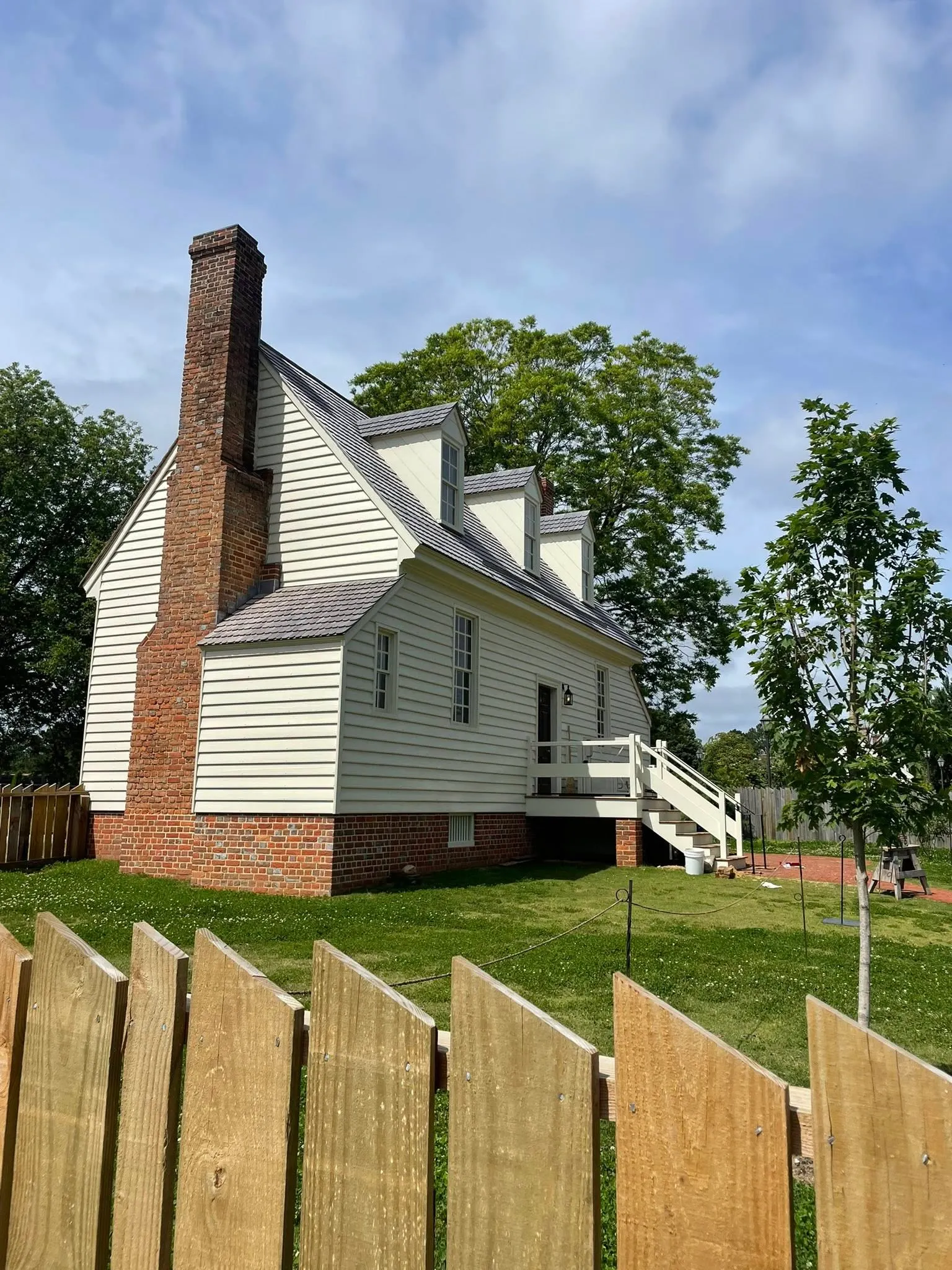3 Names From American History You May Not Know but Should Learn
Why I decided to do a post about these 3 founding fathers.
Jefferson, Washington, and later historical figures like Lincoln and John Wilkes Booth as well as earlier ones like Captain John Smith and Pocahontas are stamped into our memories from both oral history, pop culture, and what we had in our early textbooks.
But they weren't the only names you should know in my opinion! Just because you haven’t heard a name yet, doesn’t mean someone didn’t have a massive impact.
There are more people, men, and women, young and old, native, African, European and from all over the globe that I’ll write about as the blog continues. But I chose to do this today, focused on some people associated with both Virginia’s and Colonial Williamsburg’s (CW) activities around the time of the Revolution.
RELATED: If you haven’t yet, read this post on my take on what American history is about!
Disclaimer: As a blogger, I use affiliate links sometimes! I may receive commission from purchases I share; it does not change your price but sometimes you might get a discount.
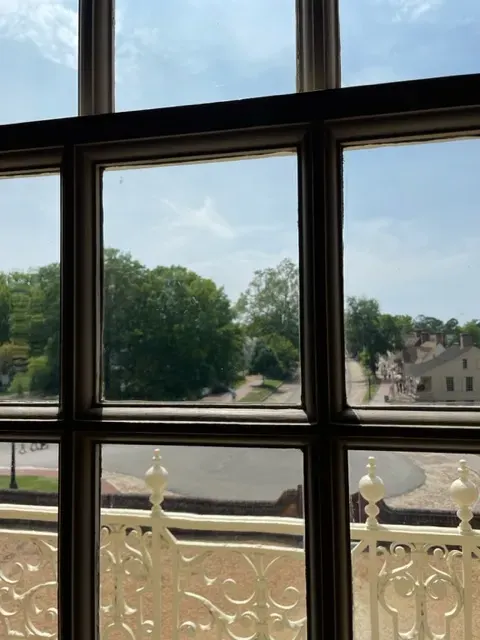
View from Capitol building in CW
Peyton Randolph:
Why you don’t know him.
He died in October of 1775- in Pennsylvania at age 54. We declared independence in 1776. Sad for Peyton and his family that he is so easily forgotten in our history books.
Why you should.
Not only did he become Attorney General at age 23, but he continued on the political path into the House of Burgesses, where he became speaker. (side note: the chair he sat on is the only known surviving furnishing from the Capitol fire and is currently in the reconstructed building!).
Further on, he was President of both the 1st and 2nd Continental Congresses… succeeded by John Hancock. Clearly, if he hadn’t died, you’d have heard his name! I’m willing to bet we’d likely be saying “put your Peyton Randolph on the dotted line” instead of using “John Hancock” as slang for our signatures!
It’s more than that of course. When Lord Dunmore, Royal Governor of Virginia, dissolved the House of Burgesses as tensions rose around the colonies, Randolph led the shadow government, which is known to have met at the Raleigh Tavern in the Apollo Room.
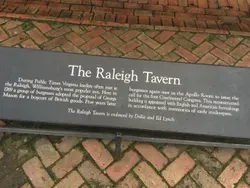
Quick facts about Randolph
- His father, Sir John Randolph, was the only native of Colonial Virginia to be knighted.
- He married Elizabeth Harrison (of the Presidential family), and they were seen as the “power couple” of their time.
- Peyton and Elizabeth (Betty) had no children, yet nieces and nephews both stayed and inherited from them.
- He loved food and his cook, also called Betty, was widely regarded for her creations. He hosted lavish dinners in his dining room, and maybe his love of rich food helped fuel his early demise? I’m told we can’t be sure (but if you know of more detail let me know!).
- He was a cousin to Thomas Jefferson and hosted many a meal with him as a guest.
People are complex, including Peyton Randolph. You’ll likely see it in this blog! The good, the bad, and all his colors between black and white.
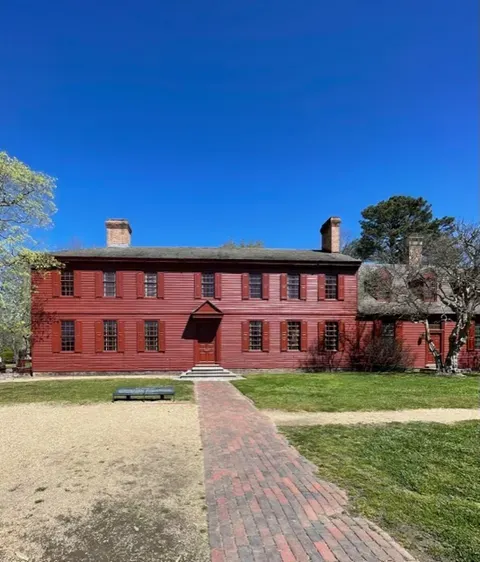
The Peyton Randolph house
George Mason:
Why you don’t know him.
Around here in Colonial Williamsburg, I’ve heard him referred to as the “forgotten father” and I’ve even seen it online! There’s one big reason his name isn’t thrown around as much as some others: he refused to be involved with creating our Constitution… because opposed doing it without a creating bill of rights first.
This opposition really seems to have ‘cut him out’ of our history books! At least from commonly known and discussed U.S. History. I’m guessing if you did the Jay Leno thing where you asked people on the street who George Mason is, you may get some confused looks around most of the country.
And I wouldn’t think anything of it; it’s why I’m adding him to this post!
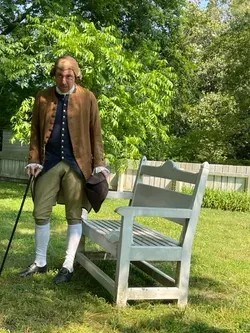
Mason being interpreted in CW.
Why you should learn about him.
George Mason wrote the Fairfax Resolves, which after collaboration with Colonel George Washington, led to the Virginia Resolves and, ultimately, became the basis for our United States Declaration of Independence.
Simply put, his putting pen to paper had an impact… and perhaps that is truly over-simplifying! His basis for a Declaration of Rights comes from an often-cited (here in CW) John Locke.
RELATED: You can read more on this older but excellent Smithsonian article.
Quick facts about Mason.
- He has a university named after him. Maybe you’ve heard of it? Click here to get a view of George Mason University.
- He was Washington’s neighbor at Gunston Hall – not far from Mt. Vernon- and they were close friends, until they weren’t.
- He didn’t oppose a Constitution… he opposed doing it without a Bill of Rights.
- He was interested in western expansion and was both a partner and treasurer in the Ohio Company.
- He declined participation in the first two continental congresses (loss of his wife was a factor). But a lot of the absences around events that I see and hear are attributed to ill health. Example here in the second to last paragraph of a letter to Jefferson.
RELATED: Dig around and read letters from George Mason on one of my favorite resources here. (You can find multiple mentions of his health!)
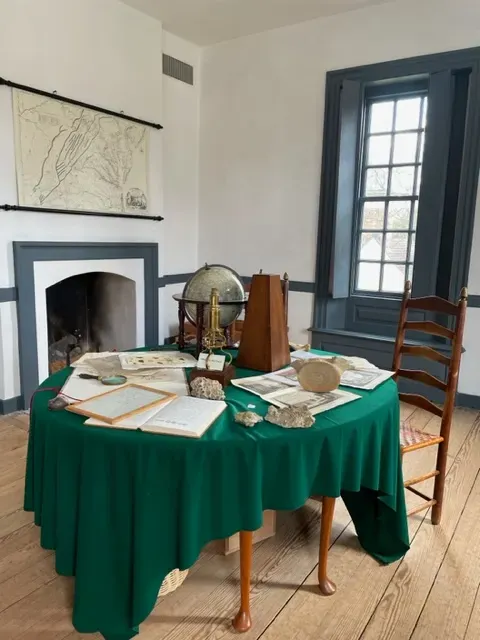
Reconstruction of where students met with George Wythe in his home.
George Wythe:
Why you don’t know him.
I haven’t figured this out! However, (updated in August 2023) I spoke with Robert Weathers, who portrays Wythe here in Williamsburg. The discussion led to the possibility his vocal views on freeing the enslaved may have led to less of his contemporaries putting him up high on a pedestal.
That may seem a harsh thought in the 21st century, but could be a credible thought for the 18th century. He was the only one of the founding fathers that actually freed his enslaved while living, not through his will. That said, he was not the only one opposed. More to study, more to learn- always!
Everything I’m learning leads me to think we all SHOULD know Mr. Wythe.
Why you should know him.
William and Mary’s first law school professor, he was mentor and teacher to so many who had a direct hand in our nation’s foundation, signing the top space in the Declaration of Independence for the Virginia Delegation. This made his the first Virginia signature.
His fellow Virginia delegates held him in such high esteem, they left that space for him to sign later, since he wasn’t there to sign it in person.
Wythe put his money (quite literally) where his mouth was. He followed his heart and freed his enslaved as soon as he was legally able- and some stayed with him as paid employees, by choice.
The close relationship Wythe had with former student and mentee Thomas Jefferson got stronger as the years went on. You can see the personal ties the two had in this 1794 letter from Jefferson to Wythe where Jefferson shares everything from his health update to wanting to share the figs he’s grown with him.
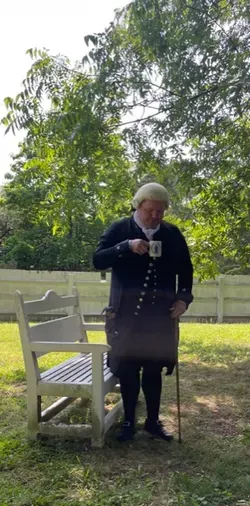
Wythe being interpreted in CW.
Facts about Wythe.
- His house on the Palace Green, which was actually owned by his wife’s family, is the “most original” of Colonial Williamsburg’s 89 original structures. (When you grab the handrail to go upstairs to the 2nd floor, you are grabbing the same handrail as Washington, Lafayette, Jefferson, and Wythe himself of course!)
- George Washington used his home as a headquarters in advance of the Battle of Yorktown.
- He called Thomas Jefferson “Mr. J.” and was the only one (known) to do so.
- His nephew is alleged to have killed him with poison, his inheritance being the reason.
I could write so much about George Wythe, who Kurt Smith, our CW Jefferson lists in his personal “immortal triumvirate,” and you’ll see him mentioned as this blog grows.
UPDATE in 2024: The Jefferson Triumvirate post is written! Click here to read it.
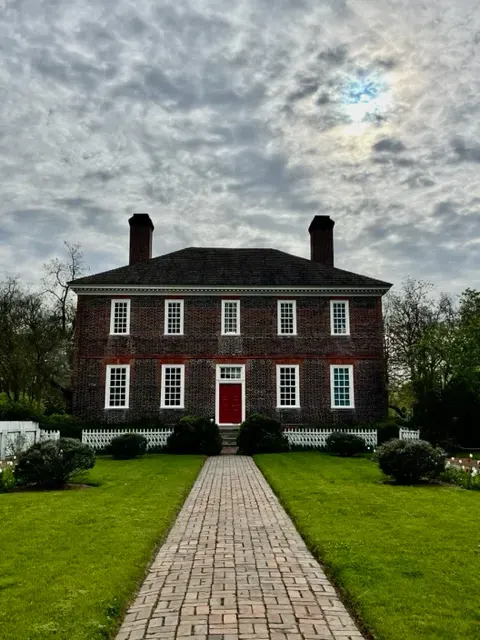
Rear view of the Wythe house
Dig deeper: Sully did more than land a plane and save all those lives.
Captain Chesley “Sully” Sullenberger did an amazing thing in 2009... he safely landed a plane in the Hudson River and saved the lives of every single employee and passenger on that plane.
A few years back, I was blessed to see him speak at a conference and he made a powerful statement (and I’m paraphrasing!): after all he’d done in his life, he’d only be remembered and judged for about 3 minutes in his life, because of a bird strike causing an emergency situation.
- He is the husband to Lorrie and raised 2 daughters with her.
- He is an officer who graduated from the Air Force Academy and holds master’s degrees from multiple universities.
- He got his pilot’s license at age 16.
RELATED: This interview with Sully 10 years after the landing.
So, my friends, dig deeper.
When you think of Thomas Jefferson, think of architecture and music.
When you think of George Washington, think about experimental farming and his friendship with the Marquis de Lafayette.
When you think of his wife Martha Dandridge Custis Washington think of fundraising for the troops and her stays at the winter camps during the Revolutionary War. (footnotes sharing an example of housing details for Martha are in these orders from 1779).
When you think of the 3 men in this post, dig deeper and learn more than the little bits I’ve shared about them!
Closing words from history.
I've started a tradition of adding closing words from history and am updating this post in May of 2024 with a few. Today's are pulled directly from Jefferson. His noting Peyton Randolph's death in October of 1775 - to read the full details of his 1775 "Memorandum Books," with citations, click here.
Memorandum Books, 1775
1775.
- Pd. Currie for leather breeches 35/.
Gave his shop boy 2/6.
Pd. Heiltzheimer 52/6.
Put into German church box 2d.This evening the amiable Peyton Randolph esq. our Speaker died about 9. o’clock of an apoplexy at the house of Mr. Richard Hill, 6 miles from this city, whither he had gone to dine.48
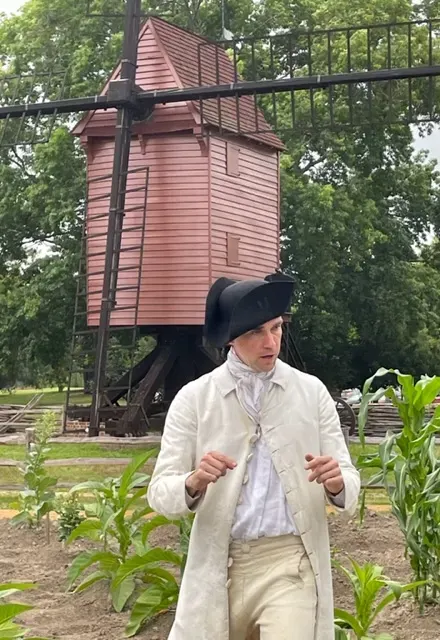
CW's Colonel Washington discussing agriculture.
Are you enjoying the blog? Use my online tip jar and buy me a coffee:

There is a huge practical disclaimer to the content on this blog, which is my way of sharing my excitement and basically journaling online.
1) I am not a historian nor an expert. I will let you know I’m relaying the information as I understand and interpret it. The employees of Colonial Williamsburg base their presentations, work, and responses on historical documents and mainly primary sources.
2) I will update for accuracy as history is constant learning. If you have a question about accuracy, please ask me! I will get the answer from the best source I can find.
3) Photo credit to me, Daphne Reznik, for all photos in this post, unless otherwise credited! All photos are personal photos taken in public access locations or with specific permission.
